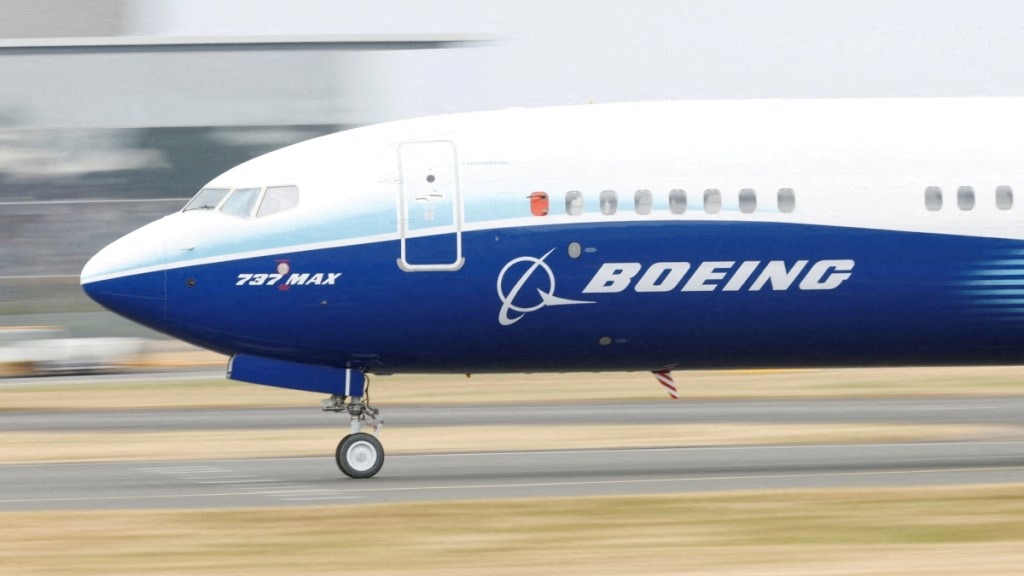Boeing’s financial crisis deepened on Wednesday as factory workers voted to reject a contract offer and extend a more than five-week strike, delivering a blow to CEO Kelly Ortberg’s plans to stabilise the struggling aerospace giant. The vote, in which 64 per cent of workers opposed a deal offering a 35 per cent wage increase over four years, underscores long-standing tensions between Boeing and its workforce. This defeat marks a significant hurdle for Ortberg, who took over as CEO in August, promising to foster closer collaboration with employees.
Years of Worker Resentment
The workers’ rejection of Boeing’s offer comes after a decisive 95 per cent vote against the first contract proposal last month and reflects years of pent-up frustration. Union members have expressed resentment over a decade of stagnant wages that have lagged behind inflation, even as Boeing prioritised share buybacks and awarded record bonuses to executives. In 2014, the company used the threat of relocating 777 production to push through a deal that replaced traditional pensions with less favourable plans, a move that left deep scars on the workforce.
Jon Holden, the union’s lead negotiator, acknowledged the workers’ grievances following the vote. “This membership has gone through a lot… there are some deep wounds,” Holden said. He expressed hope that renewed discussions with Boeing and CEO Ortberg would lead to a more favourable outcome. The union, representing over 30,000 machinists, is seeking a 40 per cent pay raise and the restoration of defined-benefit pensions.
Strike Impact and Looming Deadlines
The strike, which began on September 13, has brought production of Boeing’s key models—the 737 MAX, 767, and 777 wide-body jets—to a standstill. This disruption comes at a critical time for Boeing, the largest US exporter, which is already grappling with significant financial strain. The ongoing labour dispute and halted production put additional pressure on Boeing to resolve the US presidential election on November 5, as the outcome could have broader implications for the national economy.
Adding to the urgency, US Secretary of Labor Julie Su recently intervened to broker the latest contract proposal. However, despite her involvement, the impasse persists. Holden indicated that the union would seek further assistance from the White House in hopes of securing a better deal.
The strike’s impact is also reverberating throughout Boeing’s supply chain. Spirit AeroSystems, a key fuselage supplier, has already furloughed 700 workers for 21 days, warning that prolonged labour unrest could lead to layoffs and further production slowdowns.
Financial Strain and a “Defining Moment” for Boeing
For Boeing, the stakes are high. The company has announced plans to cut 17,000 jobs and is pursuing a $15 billion capital raise to protect its investment-grade credit rating. Additionally, production delays caused by the strike have forced some airline customers to reduce flight schedules. During a recent earnings call, Boeing projected continued cash burn through 2025, with Ortberg acknowledging that there was no “quick fix” for the company’s mounting problems.
Richard Aboulafia, managing director of AeroDynamic Advisory, called this crisis a “defining moment” for Ortberg’s leadership. He emphasized the importance of reaching a deal quickly, noting that Boeing is in a position of weakness. “There’s a feeling that he hasn’t handled this as well as he might have,” Aboulafia said.
Worker Sentiment and Union Strategy
The workers’ rejection of the latest offer reflects both their dissatisfaction with the terms and their determination to secure a better deal. Some employees voiced concerns that Boeing’s offer was misleading, suggesting that the company was simply repackaging previous terms without substantial improvements.
“We’re ready to go back on strike until we get a better deal,” said 25-year-old Irina Briones. Other workers echoed her sentiment, with many feeling emboldened by the union’s stronger negotiating position compared to previous years. Donovan Evans, a 30-year-old employee at Boeing’s 767 factory, said, “We’re going to get what we want this time. We have better legs to stand on than Boeing.”
While many workers acknowledge that the return of traditional pensions is unlikely, they remain firm in their demand for a 40 per cent wage increase, signalling that Boeing will need to make significant concessions if it hopes to resolve the strike.
Boeing now faces a critical juncture. As production remains stalled and the financial outlook grows more precarious, the company must navigate complex negotiations to restore operations and mend relations with its workforce. For CEO Kelly Ortberg, this represents a pivotal test of leadership as he seeks to guide Boeing through one of the most challenging periods in its history.
With the strike’s far-reaching consequences for Boeing, its suppliers, and the broader US economy, all eyes are on the next steps in this high-stakes standoff.
(With Reuters inputs)
